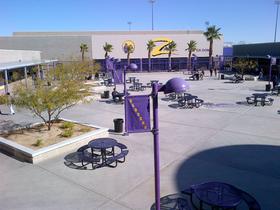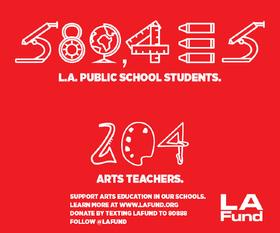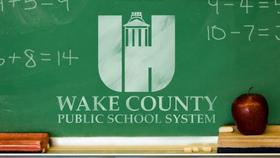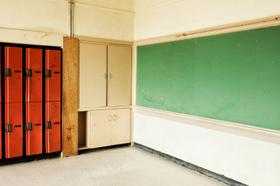No Child Left Behind set a lofty goal some years ago that included a minimum graduation rate of 90 percent in every school district across the country. While many school districts have reached or are nearing that goal, one of the largest school districts in the country, Memphis City Schools, still faces a wide chasm of reaching the benchmark.
Memphis Business Journal reports that in 2012, the graduation rate for Memphis City Schools was just 70.3 percent. While this percentage is much higher than the 2009 figure of 62.1 percent, it is still far from that 90 percent. It is also far below the statewide graduation rate of 87.2 percent in 2012.
To help the school district improve graduation rates, several options are now on the table of the Memphis school board. With these choices help or hinder the slow but steady improvements the district has already seen in recent years? The answer may depend on who you ask.
This video reports on improving graduation rates.
Online Schooling to Improve in Memphis
One option Memphis students now have is an online school, which allows students at all levels to work toward their standards at their own pace. However, the only online school in Tennessee currently, Tennessee Virtual Academy, has released its first round of test scores with rather dismal results. According to a recent report in the Memphis Daily News, a new bill recently passed the state senate that would provide more oversight of online schools by tightening enrollment requirements.
The bill was proposed by Republican Senate Majority Leader Mark Norris of Collierville. It would allow online schools to launch with an enrollment of 1,500. The school would then be able to expand to a maximum capacity of 5,000 as long as it met performance benchmarks. Schools that failed to meet benchmarks for three consecutive years could have enrollment capped or be closed entirely, based on the decision of the state education commissioner.
School Voucher Bill Passes House
Another option that could soon be available to students in failing Memphis schools is a voucher system that allows them to attend the school of their choice. WREG reports that the Tennessee House committee recently voted to allow a bill favoring school vouchers forward in the legislative process. This bill would provide additional choices to students in the bottom five percent of schools in Memphis City, using a voucher worth $6,300. The money is a large portion of the tax dollars allotted to each student in the Memphis school system. The rest would remain within the public schools in the district.
While many in Memphis City favor the move, others vehemently oppose the idea of a voucher system in their district. The Memphis Education Association has called the voucher program a way to “weaken the coffers for all students in the county and state.” The president of MEA, Keith Williams, explained that private schools are currently outperforming public schools in the area due to parental involvement and resources for students attending private schools. If other public school students joined the private school roster, Williams believes private schools would see the same problems currently facing public schools.
This video reports on a success story about improving graduation rates.
Charters Another Option for Students
Adding more charter schools is another option supported by many Memphis parents. The Memphis Daily News reports that a House committee recently passed through a proposal that would establish a separate panel for approving charter school applications. The proposal was sponsored by Republican Rep. Mark White, and would allow charter schools from both Memphis and Nashville districts to seek charter authorization from the nine-member panel appointed by the governor and other state lawmakers.
“Our underlying principle is quality in the authorizing process,” Matt Throckmorton, executive director of the Tennessee Charter Schools Association, told the Memphis Daily News. “And for the last several years, I’ve noticed that our authorization process is becoming more political.”
While the proposal has been lauded as a way to increase charter schools throughout the state, others have voiced concern that a separate panel would take control of schools away from local districts. In addition, some are worried that the additional panel would siphon taxpayer dollars away from the public school system at a time when schools desperately need more money in their budgets.
“This law amounts to nothing more than an unfunded mandate which will blow a hole in local budgets, potentially forcing tax increases to pay for charter schools that weren’t good enough to pass local scrutiny,” Mike Turner, House Democratic Caucus Chairman, told the Memphis Daily News.
Learning for Fun
In another, a less controversial move, Memphis City Schools has announced the addition of math and science gaming options for students. The Journal reports that the district has agreed with Penda Learning to provide games to students in grades four through 10. The service is designed to offer students around 15 minutes of activities at a time, progressively increasing difficulty in fostering learning and skills improvement. Progress summaries will be distributed to teachers to help them accurately track student progress. The same program is currently being used in Ohio, Florida, and California.
Finding ways to improve graduation rates across an entire school district isn’t easy, but Memphis City Schools is poised to succeed. While the district may not make the No Child Left Behind benchmark of 90 percent by 2014, it is employing many different options for continuing its improvement in graduation rates at a slow but steady pace.
Questions? Contact us on Facebook. @publicschoolreview















